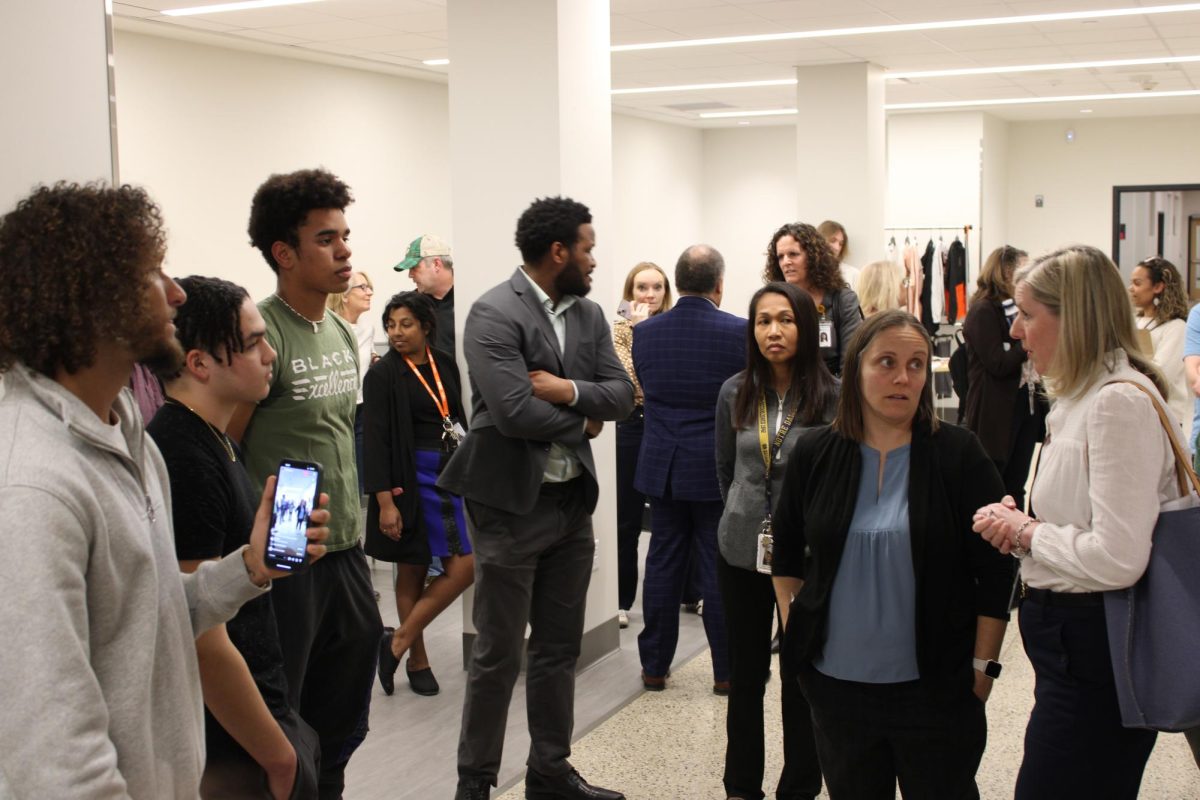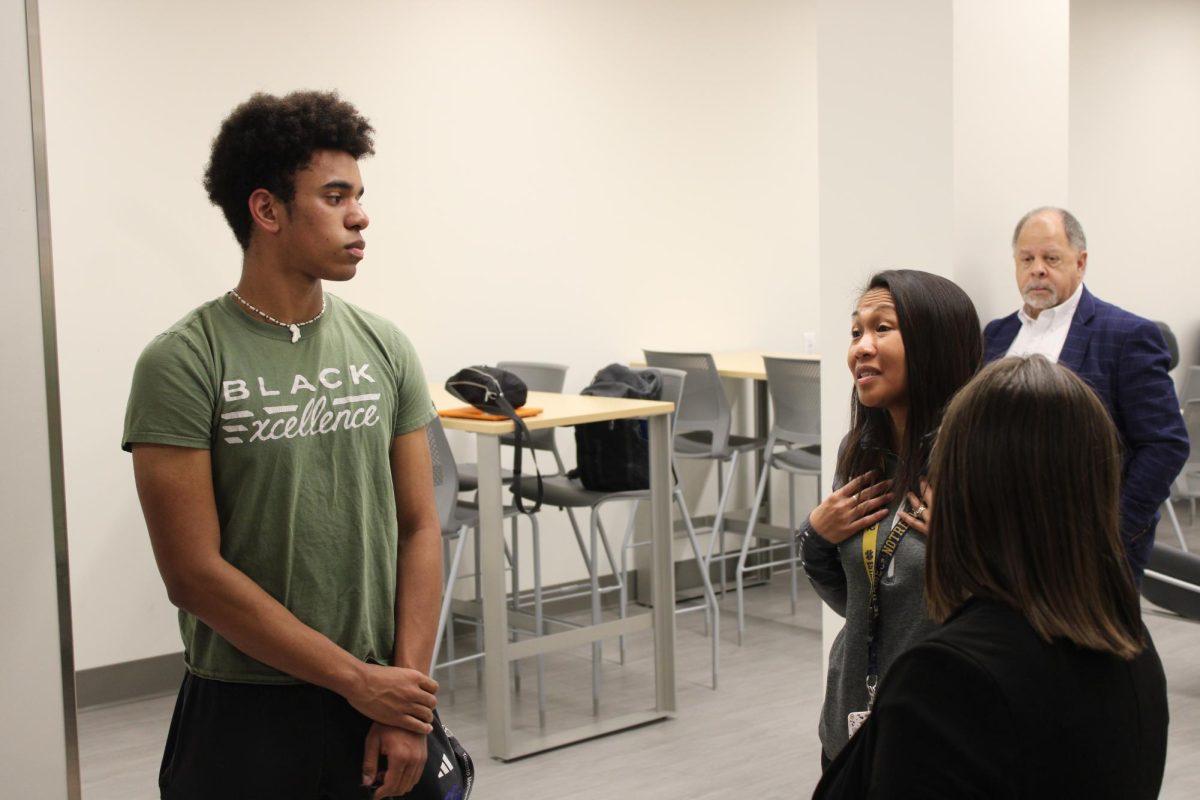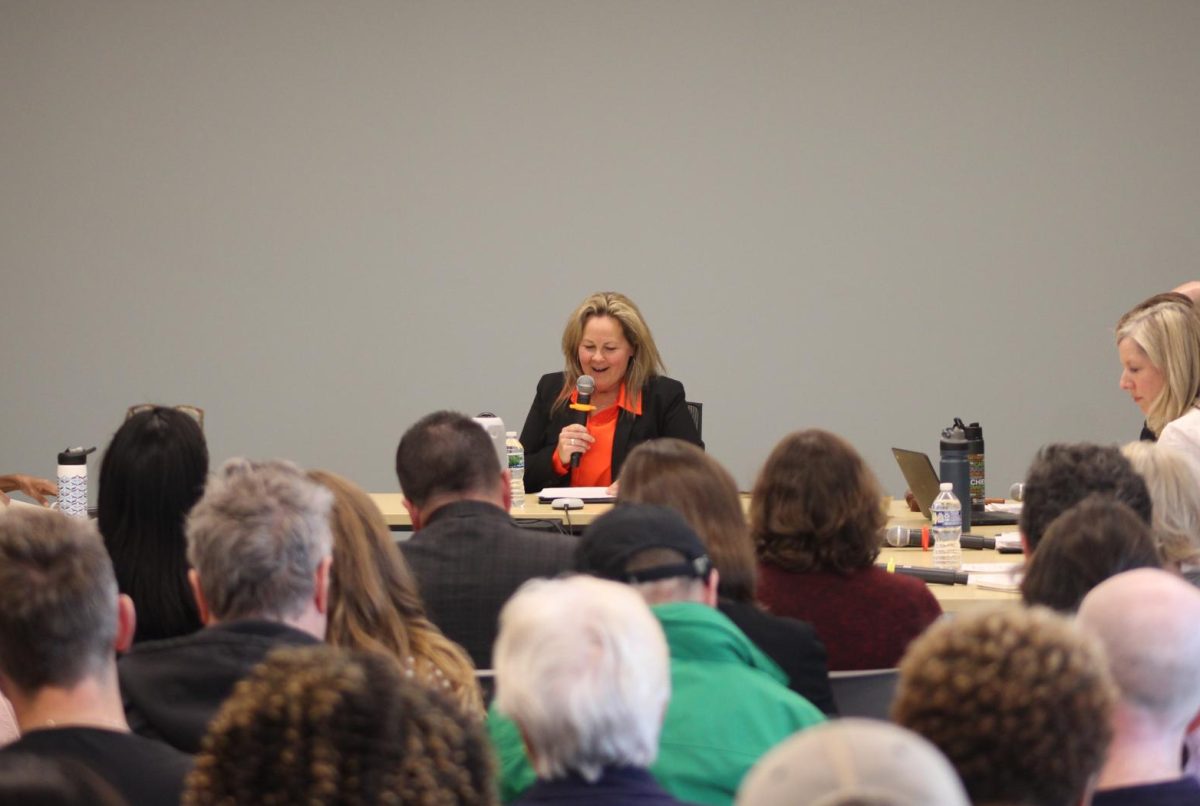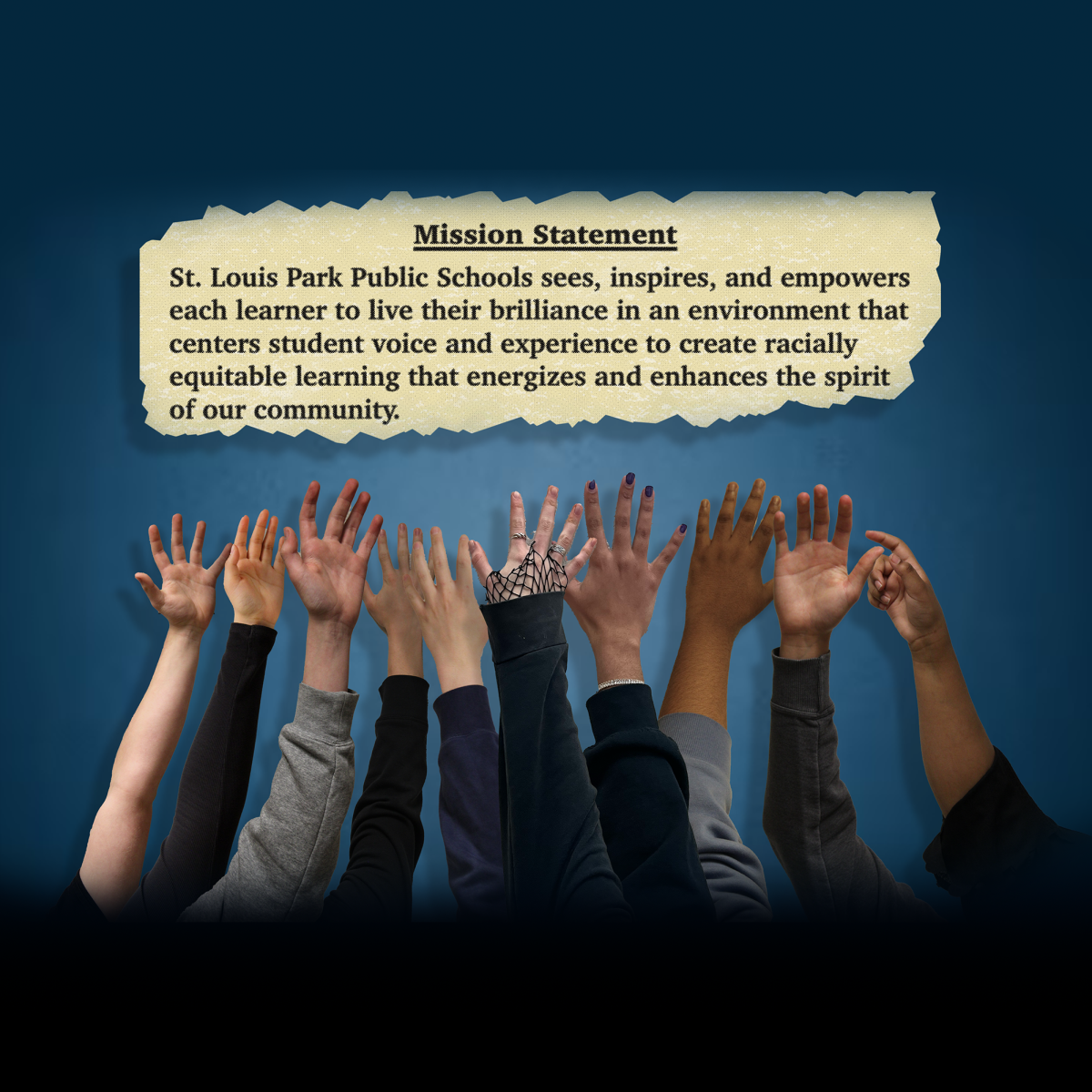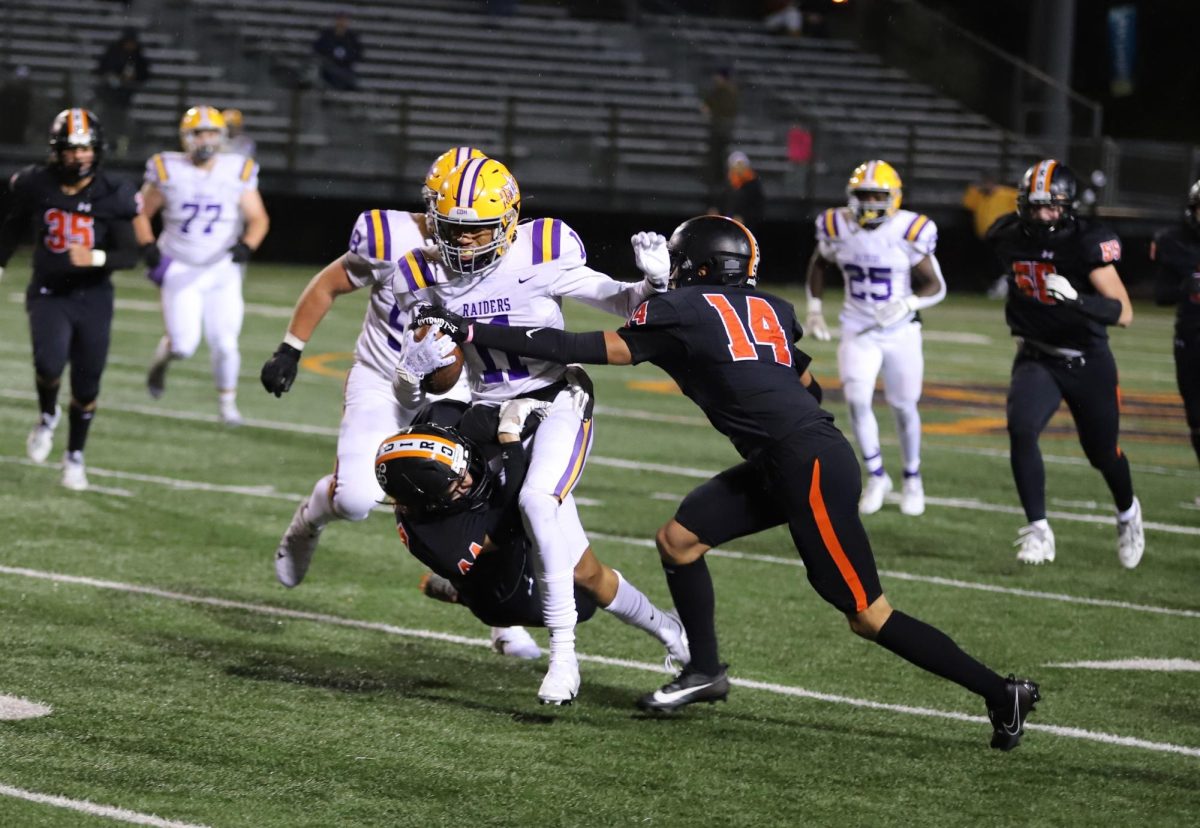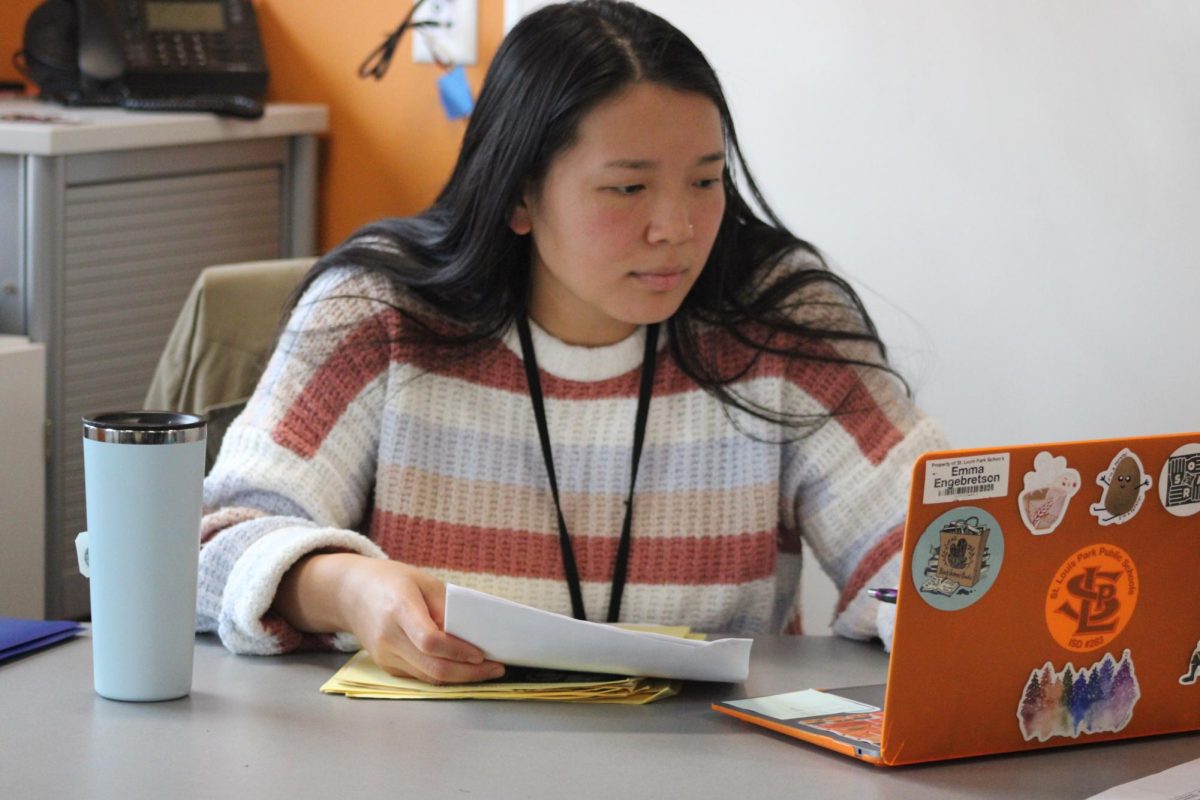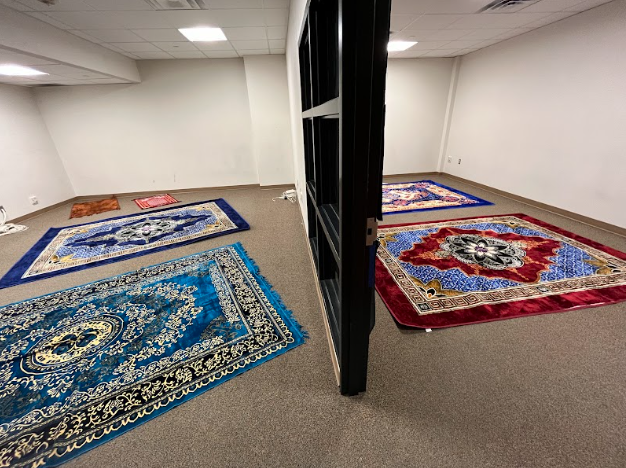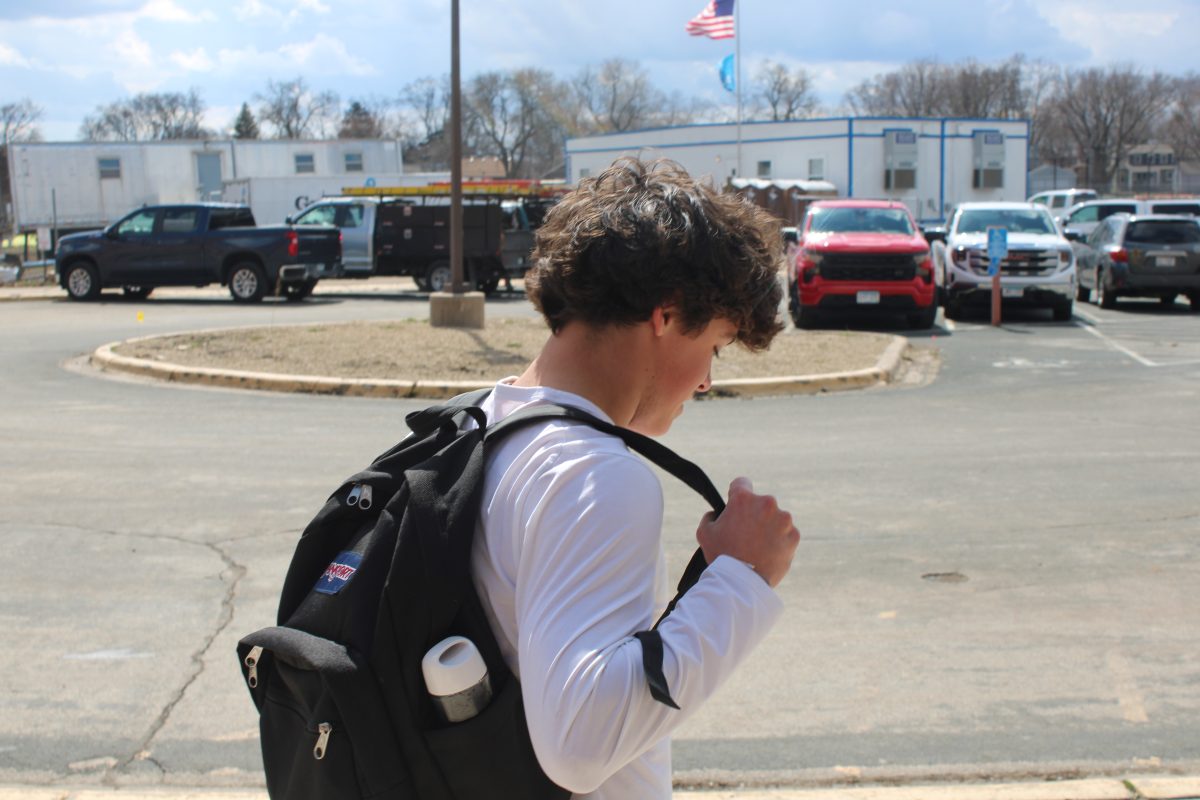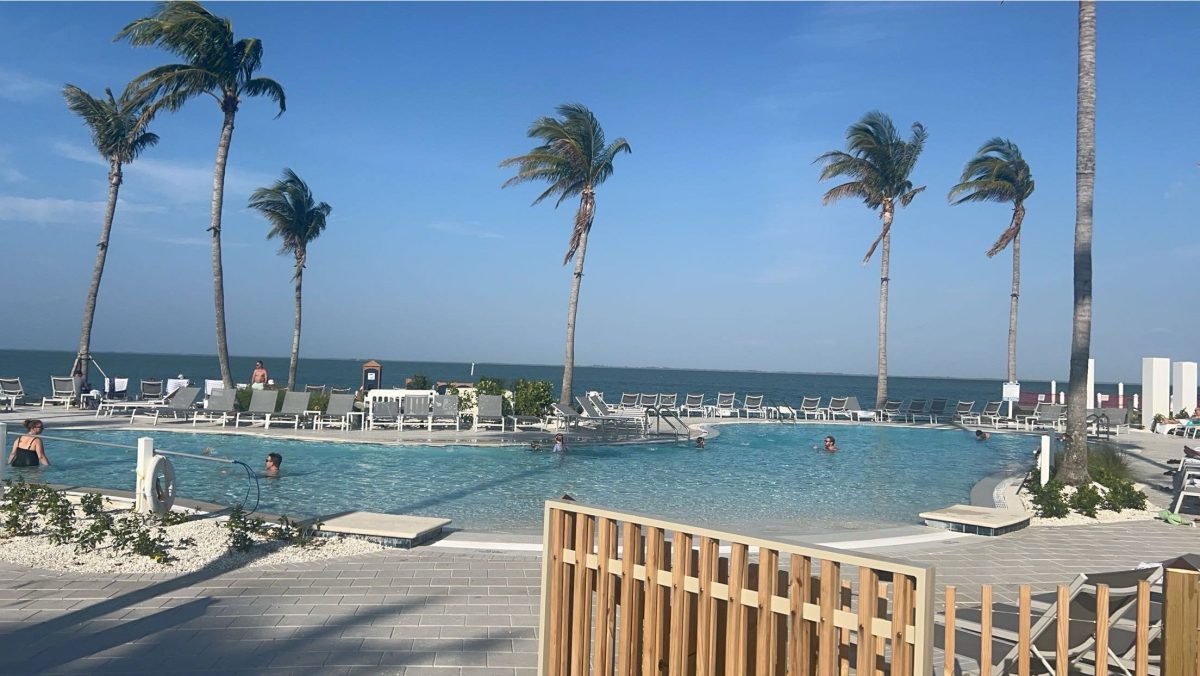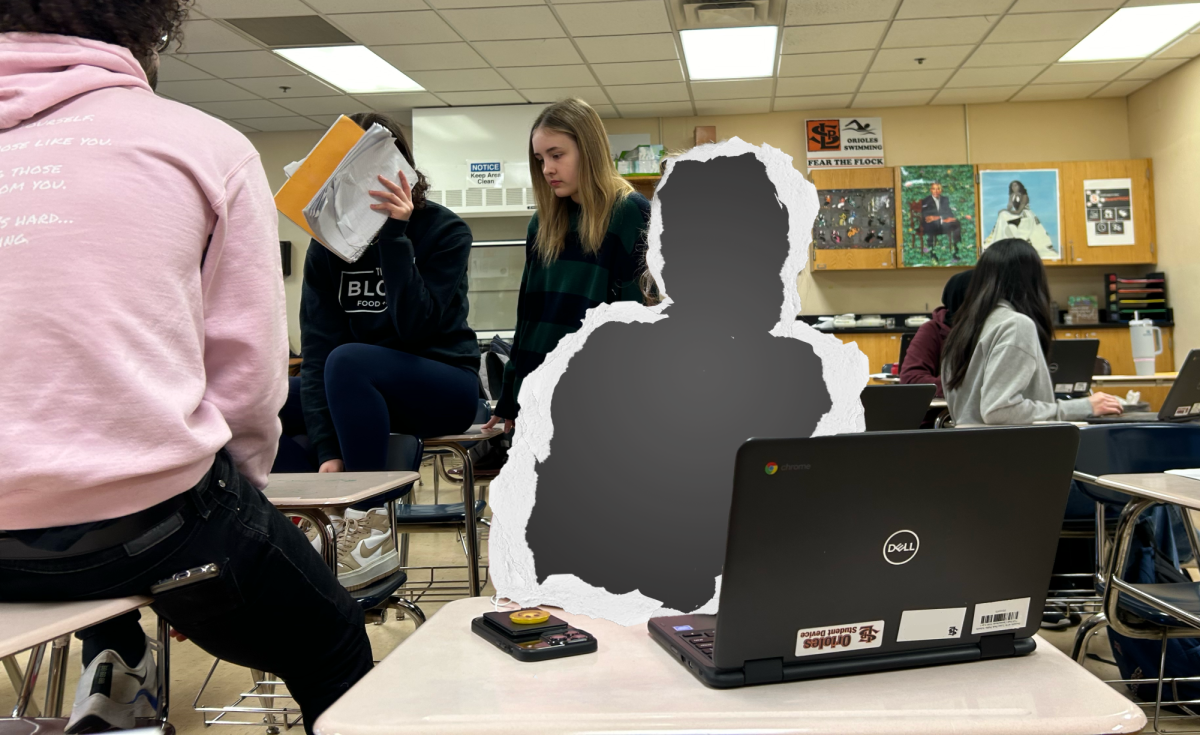Superintendent election interrupted
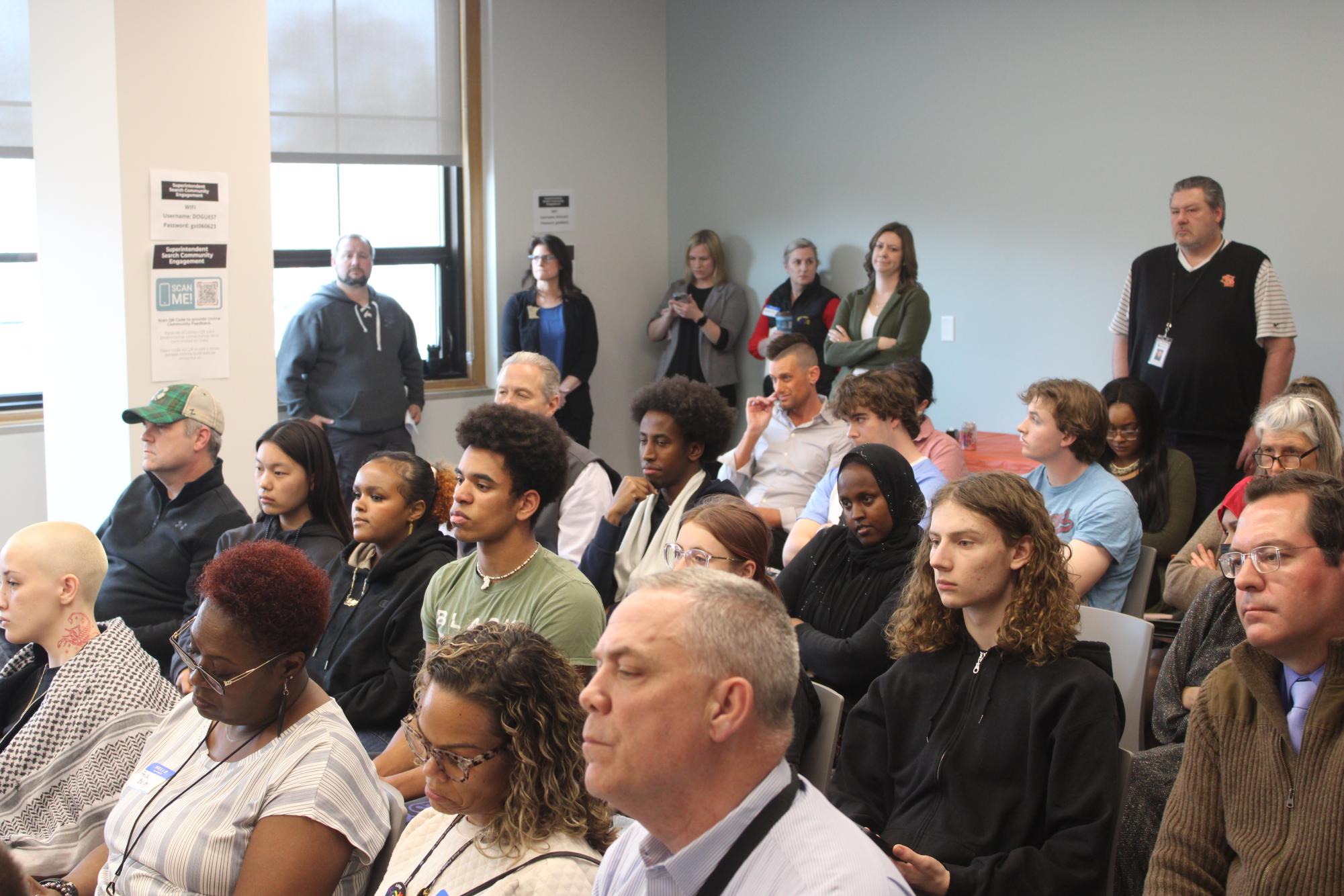
The election finalists were Dr. Teri Staloch, former superintendent at Prior Lake, and Dr. Carla Hines, a former associate superintendent at Eden Prairie. Both finalists were set to answer a series of questions sent in from community members, and Staloch was up first. While answering a question about equity in schools, Staloch was interrupted by Park senior Calvin Zimmerman.
“You’ve never advanced anything,” Zimmerman said, standing from his seat. “You’ve only contributed to racism.”
At this, the School Board called for a recess and warned against further interruptions.
“You are a danger to children of color here,” he continued. “We didn’t forget Prior Lake.”
In 2021, Prior Lake students spread videos harassing students of color, which garnered the school national attention. An out-of-district activist had been livestreaming the meeting from his cell phone. He spoke next, questioning alleged Prior Lake District policy.
“Why did you have a policy that made it so black kids who were called the n-word got in more trouble than the white kids that called them the n-word?” He said.
Several students joined in voicing their opinion as parents and board members walked out. Of seven School Board members, three remained. Zimmerman said the board doesn’t protect students of color.
“You don’t care about us,” he shouted. “Our children of color are in danger in this school and we do nothing about it. I’m terrified of Teri. I don’t want her in my district. She will infect the school with more racism than it has already seen. Do we want that for our children?”
The student section erupted in a chorus of “no.” One student said the board should listen to the voices of the students.
“These are students speaking on their own experiences,” the student said. “If we can’t listen to them and their experiences, I don’t know whose voice is elevated here.”
During the recess, Zimmerman and the activist met board member Sarah Davis outside the conference room. Davis had remained in the boardroom during the walkout. A small crowd formed around them, including Dr. Silvy Lafayette, who said delaying the election process could be detrimental to the protestors’ goals.
“I think your intent is good,” Lafayette said. “That’s why I’m with Sarah. I want you to stay, but the impact of all of this, the longer pause, could be a negative impact.”
Junior Jaiden Leary approached the group, standing alongside Zimmerman and the activist. The three formed a line opposite the administrators, bisecting the crowd. Leary spoke to Davis directly.
“You know me,” Leary said. “You know that if I am speaking out, then this is really bad…You guys came to SOAR to ask us what we think of this candidate. We said no. Now you’re asking us here to be quiet and let it go through without saying anything.”
Davis reiterated Lafayette’s statement. She said interrupting the election process would only halt any progress students could make.
“I’m asking you to allow the process to move forward and to give us your feedback,” Davis said. “I hear you, but we’re not going to get to the point where there’s a reaction to an action if you keep doing this.”
The activist turned to leave, saying the conversation was “dead.” Zimmerman followed, leaving Leary and Davis in the hallway. Davis spoke to Leary.
“You’re a part of our school, Jaiden,” she said. “You’re a leader.”
“And we said no,” Leary said. “I like both of you, but we said no. We said no.”
“That matters to me, it matters to us —” Davis said.
The activist returned, cutting in as the two spoke.
“The gaslighting won’t end, Jaiden,” he said.
Leary continued speaking to Davis. Their conversation was unintelligible under the activist’s voice.
“ — so delay the vote so we can have a conversation —” Leary said.
“It’s not going to work,” the activist maintained.
He put a hand on Leary’s shoulder. With that, the conversation ended.
The search for a new superintendent began in December. The position was posted in January, and by the Feb. 7 deadline Park had 25 applicants. The task of narrowing down the list of candidates was handed to the Minnesota School Board Association, who gave a list of six candidates to the board. MSBA Deputy Executive Director Gary Lee said they worked to engage with the community on a level the school board was unable to.
“It’s impossible for (the board members) to know all variations of what the St. Louis Park community deems as important characteristics and abilities of this very public person, the superintendent of schools,” Lee said. “Because of this, a community feedback process is included with our service.”
During February the board narrowed down that list from six to two. Board chair Colin Cox said the board considered candidates based on their eligibility and leadership qualities.
“We reached an agreement on four candidates we thought had the strongest potential,” Cox said. “All four met a basic standard: experience in district wide leadership, educational background and clear indication of readiness.”
Cox said the board took steps to include the public in the election process. This community engagement included a survey of over 1,000 district residents, 45 percent of whom were students, and three focus groups with key demographics. The board worked with the MSBA to publish a stakeholder report with the results Feb. 3.
“Our board expressed an interest in gathering additional intel from our community,” Cox said. “Between December and January we asked stakeholders for their input. We got an outstanding response… This is on top of three targeted focus groups to provide more specific input. We used that information to inform the rest of the process.”
Superintendent search timeline
One focus group held by the MSBA Jan. 17 interviewed 30 SOAR students on the qualities they wanted in a new superintendent. Their responses are summarized in the stakeholder report, where they stress a desire for a candidate knowledgeable on racial equity.
“The new superintendent must recognize and appreciate the rich diversity within the St. Louis Park student body,” the report summarized. “A strong emphasis is placed on the ability to be an authentic listener, inclusive, and empathetic, particularly towards people of color.”
Senior Jersey Miller said Staloch did not align with the values outlined in the stakeholder report, citing Staloch’s history as superintendent of Prior Lake during the scandal that made national news.
“I was concerned because of the history she has at Prior Lake,” Miller said. “That’s a school district that has been known to be really racist — one girl almost took her life because of the racism that her district allowed and that she allowed, so I didn’t think she would be a good leader for Park.”
This Prior Lake scandal was brought up during a March 6 meeting, where chants of “Remember Nya” erupted from students in the audience.
Senior Fatima Ghandour said student input wasn’t thoroughly considered by the School Board. She said SOAR students were in the dark throughout much of the selection process, which further made it difficult to get their voices heard.
“(The School Board) said student voices should be heard, but when it came down to choosing, they didn’t value our words,” Ghandour said. “They could have included us more. People from SOAR were just on the edge of the whole thing. We didn’t know what to do.”
Lee said the School Board made a decision based on data the MSBA made available to them. According to Lee, no single candidate could accommodate the desires of every community member.
“(The School Board) realized from the beginning that they will not be able to find a candidate for the job that can satisfy every want of all the stakeholders and also every characteristic they personally hold to be important,” Lee said. “The perfect candidate for any job does not exist, because some of the preferences of the stakeholders may differ.”
The board opened a forum for questions from the public. Miller said SOAR submitted questions that would target candidates’ stances on racial equity.
“We wrote questions about racial equity that we wanted to make sure the candidates were asked,” Miller said. “We tried to write questions that would get us to a candidate that would be good for SLP.”
On March 1 the board announced Staloch and Hines as the final two candidates for superintendent, with the final round of interviews set for the end of the week. Instagram stories shared by SOAR members called for Park students to show up and advocate against Staloch.
Senior James Dwyer said he went to the meeting to help represent student voices in the election process.
“I felt like it was important to have a student presence there to show the board that we care about this procession,” Dwyer said. “I wanted to hear from the candidates about why they wanted this job and if they were qualified.”
Minutes after the conversation between Leary and Davis ended and minutes before the interview would resume, students from SOAR met in the hallway in a tight huddle to discuss next steps. Zimmerman and a board member had negotiated a meeting after the interview where the students could share their input.
The group of SOAR students met with four board members after the board meeting. Dwyer, who was present during the second meeting, said the board listened to the students’ concerns.
“We explained to them that we can’t have this candidate (Staloch). It’s not a good decision for our school,” Dwyer said. “At first it didn’t seem like they were taking us seriously, but I appreciated that they were willing to listen to us. We were able to tell them where we were coming from.”
An unrelated medical emergency forced the board to adjourn the meeting before the vote. They resumed March 18 to make their final decision. This time, the room was devoid of students, the back rows vacant. Davis said in the meeting that she took responsibility for the lack of student voices in the decision making process.
“I had a chance last week between sessions to speak with some of our students and it became clear during our conversation that they had feedback they had given that did not make it to us,” Davis said. “As a board director, I’m accountable for that. We have to do better in making sure that that feedback comes to us.”
Davis said the incident at the previous meeting was indicative of a larger problem within the district around the inclusion of BIPOC student voices in policy and decision making.
“It’s clear to me that there’s a gap between what we put out through our policies, what we hear at a board level, and the daily lived experiences of our BIPOC students,” Davis said. “I’m committed to finding ways to close that gap. If we’re actually about equity, we should be making sure our policies align with lived experiences.”
Board member Anne Casey said in recent months, the board has been preoccupied with the search and other events, but pledges to work to make student input a priority in the future, suggesting the idea of a student representative on the School Board.
“It’s very clear to me that the board needs more pathways for student input and engagement. A lot of stuff has happened in these last few months, and I want to own that I took my eye off that work,” Casey said. “I hope we can get back to the work of integrating student input into our policy process, and to the possibility of a student school board representative.”
After over an hour of deliberation, the board motioned to complete the final vote. Hines won in an initial vote of 5-2 and an official unanimous vote. Dwyer said SOAR showing up and communicating with the board directly influenced their decision.
“It definitely helped to show up and be adamant that we did not want Teri,” Dwyer said. “I think SOAR contributed to finalizing their opinion.”
Hines is set to begin working July 1, pending contract negotiations.




